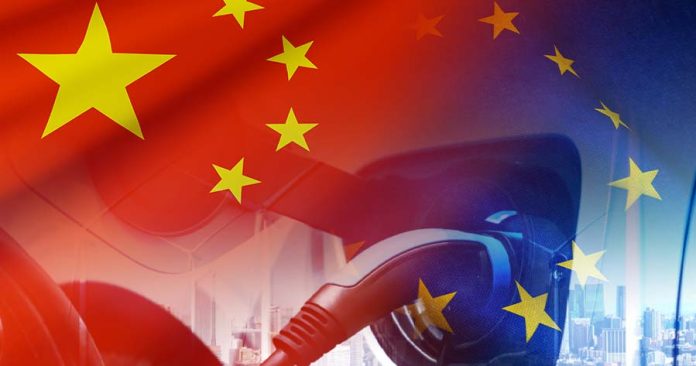The European Commission defended the legality of its trade duties on Chinese-made electric vehicles (EVs) as several legal experts argued it might have breached World Trade Organisation (WTO) rules in its anti-dumping investigation.
Following China’s decision earlier this month to file a formal complaint with the WTO over the EU’s provisional duties, legal analysts argued that the sheer complexity of the case meant that the Commission might have breached WTO rules during its nine-month investigation. Victor Crochet, senior associate at Van Bael & Bellis, told Euractiv:
[There is] an almost 100% chance that the Commission violated some WTO rules. When you bring a WTO case against another country, you rarely win, or you lose entirely. The probable result of the case is not a withdrawal of the measures altogether, but a reduction in the level of the duties.
However, European Commission spokesman Olof Gill said the EU leadership was “very confident that every aspect of its investigation has been fully in line with all relevant WTO and EU rules.” He also pointed to Tuesday’s downward revision of EU tariffs as “show[ing] that the Commission fully respects all relevant rules and obligations and bases its findings strictly on facts and evidence.”
Reduced tariffs
The EU provisional tariffs now stand at 36.3 per cent, down from 38.1 per cent that the Commission originally outlined in June. A ruling in favour of China could send a signal that the global trading system still offered emerging economies like China ” means to challenge the actions of more established powers,” international and EU trade and sanctions lawyer Evangelia Anevlavi stated.
If the EU did indeed fail to provide China with all necessary information or did not properly justify its determinations, this could constitute a serious breach of its WTO obligations.
Meanwhile, trade experts noted that China’s complaint to the WTO concerned only the EU’s provisional tariffs, not the final ones, which were expected to be imposed at the end of October. In other words, Beijing will have to file a second formal complaint if no negotiated agreement is reached.
To prevent the duties from becoming permanent, 15 EU countries representing at least 65 per cent of the bloc’s population must vote in favour of blocking the duties. However, only four member states voted against the tariffs in an advisory vote in July.
